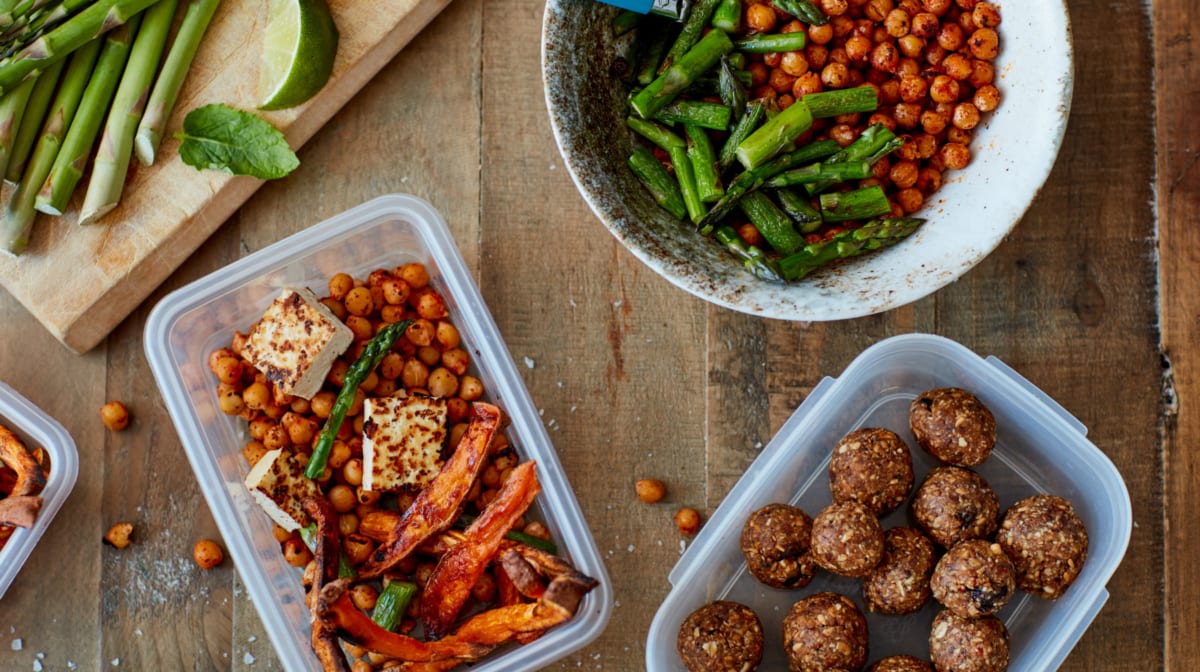
The 5:2 diet has grown in popularity, but what exactly is it? Although many diets have positives and negatives, based on your preferences, the 5:2 diet might be easier to sustain than some other more detailed options.
Curious what this diet actually entails? Keep reading and find out whether or not it would benefit you and your goals, or if you should steer clear.

What is the 5:2 diet?
The 5:2 diet is a form of intermittent fasting that prescribes two very low-calorie days (fasting days) and 5 days of eating “normally”, without having to track calories or exclude entire types of foods.
How to do the 5:2 diet
To follow the 5:2 diet, you eat normally for 5 days of the week and choose two fasting days. It is best to space out the fasting days (like Mondays and Thursdays) so you are not consuming very low calories more than one day in a row.
On the 5 normal days, you should eat a reasonably healthy diet. Although you are not required to count your calories on these days, you can use our tool to calculate your estimated daily calorie expenditure to make sure you don’t overeat.
On the two 2 fasting days, women should consume 500 calories and men should consume 600. You can decide whether you’d rather break these in to 2 or 3 small meals for the day.
Are there any restrictions?
Because the 5:2 diet is based on calorie restriction and choosing healthy foods, no foods are explicitly prohibited. However, the diet recommends choosing healthy carbohydrate sources like vegetables and nuts instead of “empty” carbs from things like fizzy drinks. Choosing healthier foods, which are often lower in calories, means you can eat larger quantities.
What are the benefits?
The 5:2 diet is one specific form of intermittent fasting. Intermittent fasting has been shown to help with weight loss and other potential health benefits.
The 5:2 diet can help with weight loss
The 5:2 diet is designed to cut calories drastically twice per week, which should reduce your overall calorie consumption and lead to weight loss. Studies have shown that this type of alternate day fasting can be just as effective as a daily calorie restricted diet.1 As you might expect, weight loss was even greater when exercise was included.1
It is easy to follow
This diet has become very popular and there are many resources for recipes and meal plans that help you decide what to eat on both your fasting and non-fasting days. Once you find a meal plan that works for you, it is easy to repeat it twice a week.
It can be sustainable
Because the 5:2 diet can provide weight loss without daily restriction of calories, it can be a more flexible and successful fit for those who have struggled to stick to other eating patterns.
Is the 5:2 diet safe?
The 5:2 diet is considered safe for most people - it does not encourage the over or underconsumption of entire food groups and provides the necessary nutrition your body needs over the course of a week.
However, it’s important to always consult your doctor before embarking on a new diet, especially if you have other underlying health conditions.
Take Home Message
The 5:2 diet is a relatively simple way to incorporate intermittent fasting strategies to help achieve weight loss and reduced body fat. If you struggle to follow restrictive diets or to count every calorie each day, this diet could be a better solution. Be sure to take advantage of all of our tools and products to help you on your health journey.

Claire is a Registered Dietitian through the Academy of Nutrition and Dietetics and a board-certified Health and Wellness Coach through the International Consortium for Health and Wellness Coaching. She has a Bachelor of Science in Biology and a Master’s degree in Clinical Dietetics and Nutrition from the University of Pittsburgh.
Talking and writing about food and fitness is at the heart of Claire’s ethos as she loves to use her experience to help others meet their health and wellness goals.
Claire is also a certified indoor cycling instructor and loves the mental and physical boost she gets from regular runs and yoga classes. When she’s not keeping fit herself, she’s cheering on her hometown’s sports teams in Pittsburgh, or cooking for her family in the kitchen.
Find out more about Claire’s experience here.
1. Mattson, M. P., Longo, V. D., & Harvie, M. (2017). Impact of intermittent fasting on health and disease processes. Ageing research reviews, 39, 46-58.







